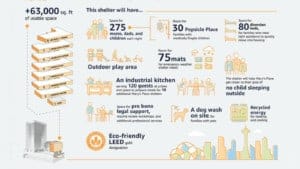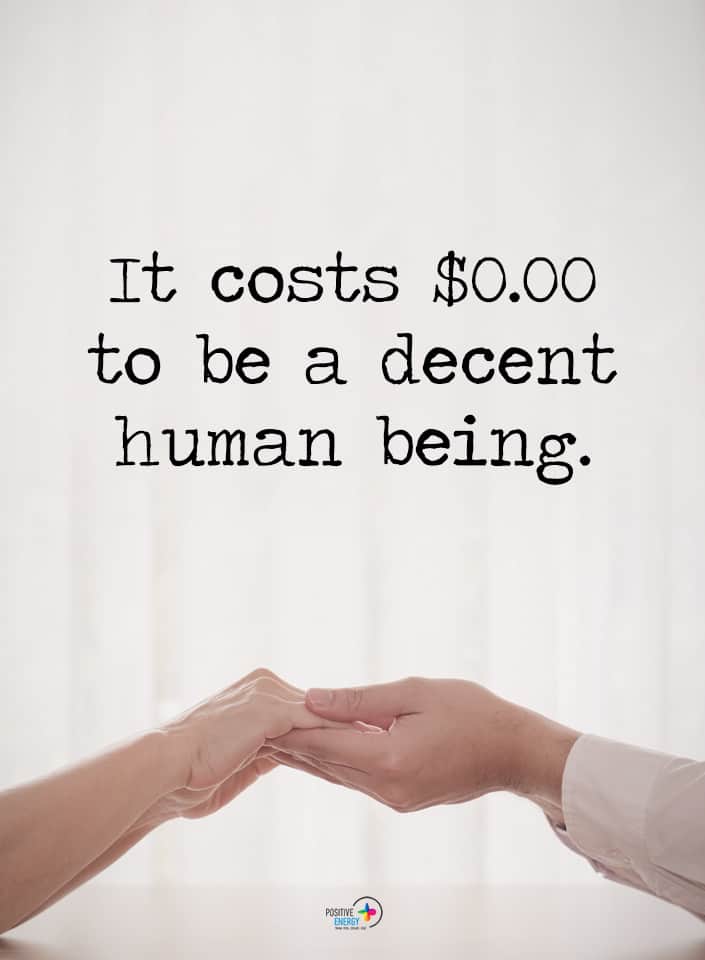The Veterans Community Project is located at 8900 Troost Avenue, in an old automobile shop. Across the street is a plot of land. There, they will build over 50 tiny homes to create a Veterans Village. The facility will house homeless veterans across Kansas City. Every one of these homes will offer veterans a solid, stable life.
Chris Stout created the Veterans Community Project. He envisioned a goal of eliminating veteran homelessness by providing transitional-housing and many other on-site services to address the root cause of veteran homelessness Because of this amazing work, CNN named Stout as one of CNN’s Top 10 Heroes of 2018.
The dedication of the Veterans Community Project to providing a stable and supportive environment for homeless veterans in Kansas City is a commendable initiative that highlights the urgent need for innovative housing solutions. In addition to the planned Veterans Village with over 50 tiny homes, there is a growing interest in alternative housing options that can further address homelessness effectively.
One such option gaining attention is the use of shipping containers for sale, which can be repurposed into durable, cost-effective living spaces. These containers can be quickly transformed into functional homes, offering a practical solution to the housing crisis faced by many veterans.
By integrating this modern approach to housing with comprehensive support services, the Veterans Community Project is paving the way for a brighter future, ensuring that those who have served our country receive the care and stability they deserve.
About Veterans Community Project
Walking into the Veterans Community Project feels more like walking into a family member’s house, not an office. A secretary greets guests at the door, with a candle burning and candy and Chapstick ready for guests to grab. Stout, the CEO and his partners Kevin Jamison and Vincent Morales renovated the entire office in just 28 days in 2014.
Even though Stout is the CEO, talking to him felt more like talking to a friend than talking to a non-profit owner. A visit to his office reveals a desk filled with commemorative mugs and awards for his service. In the corner sat his service dog, who was napping on his day off. He has two lounge chairs sitting in front of him for guests to feel welcome and comfortable.
“That’s the best part, you know, being able to interact with [the veterans],” Stout notes. “They are like family. It’s like a family here.”
Everyone who works at the VCP has some sort of connection with Stout, and flow out of each other’s offices contently, as they knew that their presence would never be a bother. Stout is a medically retired veteran, after being injured in Afghanistan, and said he is lucky he had the support he did when he got out.
“Luckily, I had family. Not everyone does,” he said. Stout said this motivated him to help these homeless veterans.
Along with Jamison, and Morales, Stout worked for 211-emergency call service when they met. Stout said he heard heart-wrenching stories of veterans suffering after getting out of the service, and he noticed there was a huge gap in the nursing market.
Why They Started The Project
The real turning point for him and his partners was when a veteran needed $200 dollars to stay in his apartment. Stout and his peers knew exactly how to get that money for him. However, the veteran’s landlord kicked him out in the middle of the day–before Stout could assist him.
They had to get a U-Haul and move him to a hotel as soon as possible, which wound up costing the team much more than 200 dollars in the long-run.
Stout said he knew he had to come up with a solution, and soon. They found an automobile shop for sale on Troost they knew would be perfect for starting a veteran non-profit. They had trouble getting a loan for their office at first, but after he put his home up for collateral, they were able to purchase the shop and begin building the tiny homes for veterans.
“People like to put these people in categories like ‘oh they’re homeless,’ or ‘oh they’re veterans,’ but the fact of the matter is, they’re people just like you and me,” said Stout. “They’re trying to make a better life for themselves just like the rest of us.”
About the Tiny Homes
Each home is 240 sq. ft., with the exception of family homes which are 320 sq. ft and can house up to 6 people. Each fully-furnished home offers a vet a private, comfortable space to themselves.
They are doing each build in phases of 10 to help the veterans adjust more easily, and there will be 50 homes on the KC property when finished. They are currently at Phase Two of the Tiny Homes project in Kansas City, which brings the current number to about 20 homes. Additionally, they are also building a 5,000 square foot community center, which they hope to finish by the springtime.
They want each veteran to have as much time as needed to be able to adjust while living in their tiny homes. However, they instituted a loose two-year maximum “rule” for living there. At that two-year point, they will sit down with the veteran to determine if VCP is the right program for them.
“It would be delusional to imagine that this is the perfect program for every single veteran,” Stout said. “We always only want what is best for them, even if it isn’t us.”
Veterans Community Project has several sponsors, including Samuel Adams beer, Google Fiber, and Coca-Cola. Although these sponsors are very appreciated, this non-profit is only expanding, and could always use more help. From volunteering to sponsorships, all assistance is welcome.
 Which Is the Next Community to Host Tiny Homes for Veterans?
Which Is the Next Community to Host Tiny Homes for Veterans?
Currently, the VCP has locations in Kansas City, Denver, St. Louis, and Nashville. They have received offers from several other cities. And, they want to expand as far as they can, so they can help as many people as possible.
They have sponsorships of $15,000 to help them build several tiny homes. Additionally, they fund other programs for veterans at their facilities. Some services they provide include drug and alcohol abuse assistance, mental and physical health services, gardening classes, cooking classes, veterinary services, and dental services.
Stout said there are several ways to get involved besides the $15,000 sponsorship. To learn more about the organization and how to get involved, visit the website at veteranscommunityproject.org, as well as their social media pages.





















